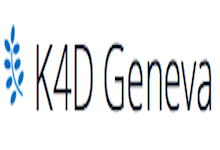Good Practices in knowledge management in the United Nations system
4 Apr 2017 02:00h
Event report
The ‘Good Practices in Knowledge Management in the United Nations System’ session at the Knowledge for Development: Global Partnership Conference addressed examples of good practices in Knowledge Management (KM) within the UN system. The session included a panel of representatives from six UN agencies and examined the successes and failures of the processes they have implemented within their organisations. Throughout the discussion, significant emphasis was placed upon the need for concrete action plans, clear expected outcomes, and accountability.
The first speaker was Mr Nikolai Rogovsky from the International Labor Organization (ILO), who spoke about the evolution of KM within the ILO since its earnest beginning in the early 2000s. The ILO’s KM strategy from 2010 to 2015 sought to coordinate KM methodologies between departments and introduce new techniques in employee training and planning processes. In developing its future KM strategic phase for 2018-2021, the ILO addressed the three main challenges it learned from in its previous measures: lack of consistency in priorities between departments, lack of perceived necessity for knowledge sharing, and a lack of innovative ways of fostering collaboration. To combat these problems, the ILO will use an incremental approach in the future, to slowly prove the benefits of information sharing within the organisation.
The second speaker was Ms Helen Maree Gillman from the International Fund for Agricultural Development (IFAD). She explained IFAD’s success in creating a broad, flexible, practical system that provided space for KM experimentation within the organisation. This ‘thousand flowers bloom’ approach, as she described it, allowed for a diverse range of KM solutions, that fostered creativity but also required strong leadership from executives to direct these efforts. IFAD has had success in capturing lessons in project implementation to use for future projects, especially through the development of ‘how-to’ guidance frameworks to record the knowledge of experts for future use.
Mr Johannes Schunter of the United Nations Development Programme (UNDP) then discussed his organisation’s two-dimensional approach to KM involving ‘stealth’ KM vs. official KM combined with ‘squirrels’ vs. ‘Big Bang’. Due to lack of board support for an official KM strategy in 2004, the UNDP implemented the ‘stealth’approach involving informal KM reforms until 2008. From 2009 to 2013, there was finally a push for an official, ‘Big Bang’ strategy which involved across-the-board changes to management structure. However, this path was risky and expensive, and support for these massive changes eventually collapsed in 2013. From 2014 to the present, UNDP has instead taken an official ‘squirrel’ approach, which involves specific solutions to small management issues. After attempting multiple strategies, it became clear to Schunter that without senior backing for significant changes, the KM will be unsuccessful. However, with clear objectives and reasonable expectations, an official KM strategy can be useful for improving internal operations.
In contrast to the ‘Big Bang’ approach attempted by the UNDP, the United Nations International Children’s Emergency Fund (UNICEF) has taken an incremental KM approach to capture and utilise its internal expertise. In 2014, Mr Ian Thorpe of UNICEF began the process of developing a portfolio to incrementally gather good practices rather than create an explicit overarching strategy. The goal of their KM was to connect staff with others in the organisation, to combine the provision of complementary expertise and facilitate collaboration. This portfolio involved a list of techniques to capture and share knowledge, as well as a comprehensive staff directory that collects data about each employee’s data.
The fifth speaker, Mr Francesco Pisano of the UN Library, took a more theoretical approach to his discussion of KM. He asked the audience to ‘zoom out’ and look at the larger ‘Knowledge Ecosystem’, which allows managers to acknowledge the impossibility of controlling the system, giving them the opportunity to discover the logic inherent to its functioning. In this sense he argued, having no strategy is better than having a bad one, because no strategy at least allows for greater degrees of freedom and flexibility. More concretely, Pisano explained the Library’s efforts to ‘mobilise’ data and transform the traditionally passive library model into an interactive, data-driven forum. This mobilisation involves organising informational pipelines to allow for a flow of specific material to its target audience, who can then send feedback about the usefulness of the content.
The final speaker, Ms Maria Gonzalez Asia from the World Bank, discussed the role of the Global Delivery Initiative as an open knowledge repository. Launched in China in November 2016, the site has since received 24,000 hits globally. The initiative brings practitioners together through a common methodology, to take advantage of cumulative knowledge; practitioners can report non-technical issues during the implementation of their projects, which is added to the database and connects the individual to others who had similar problems. Through an analysis of big data, the initiative is then able to predict the most difficult delivery challenges in order to streamline future projects
Related topics
Related event

Knowledge for Development: Global Partnership Conference 2017
3 Apr 2017 02:00h - 4 Apr 2017 02:00h
Geneva, Switzerland
